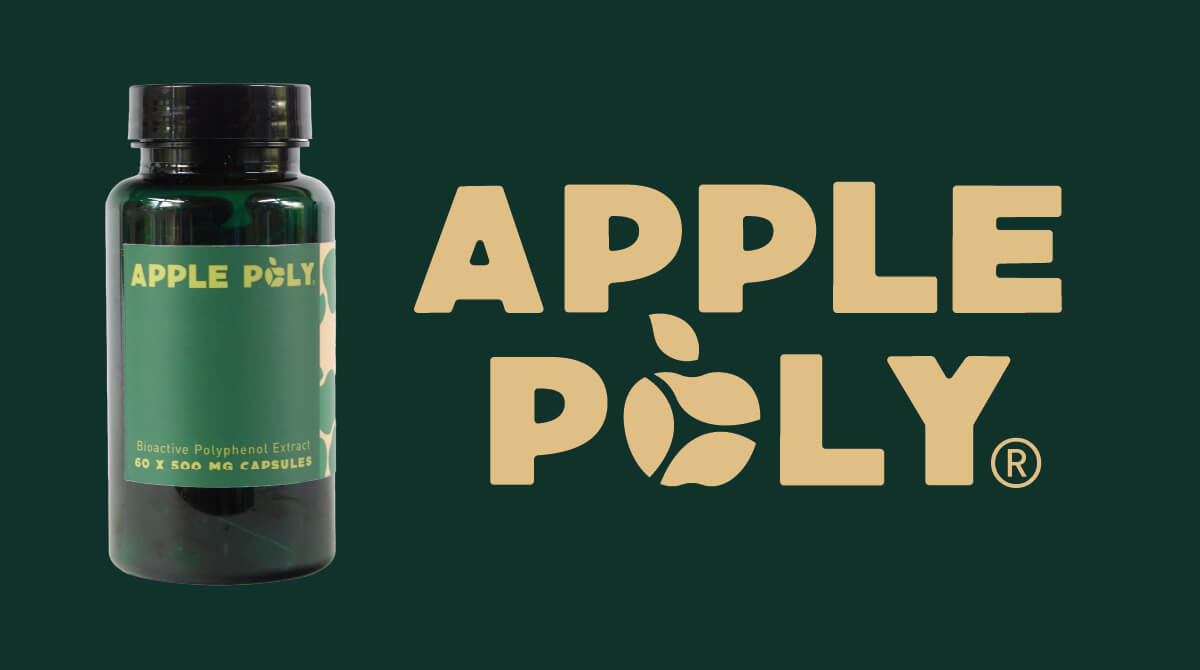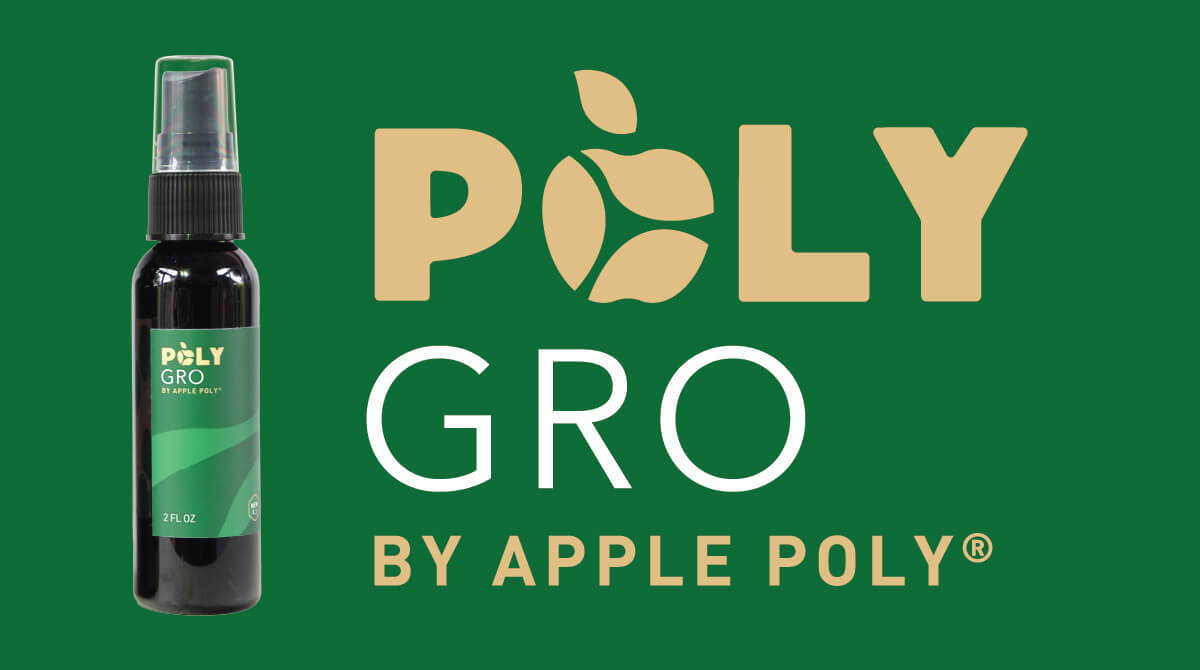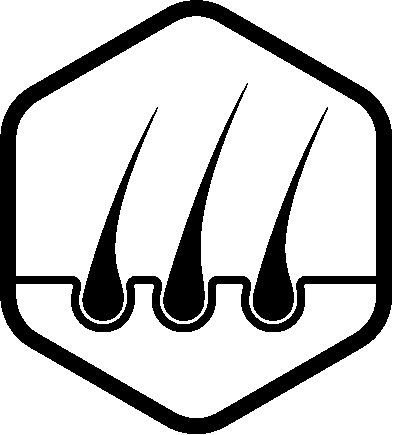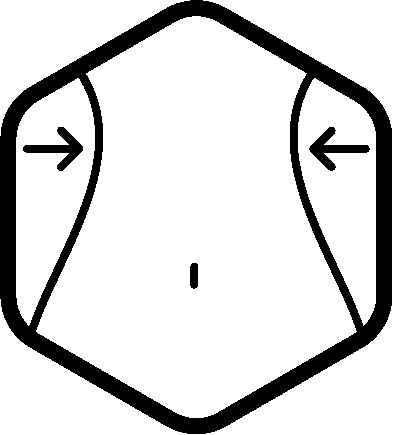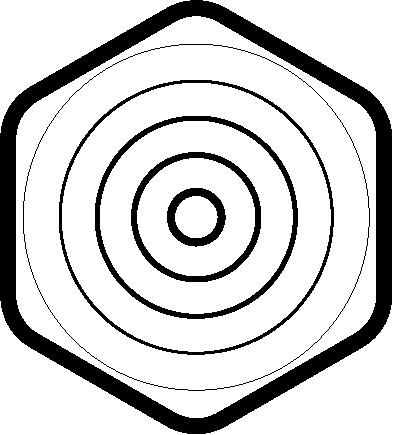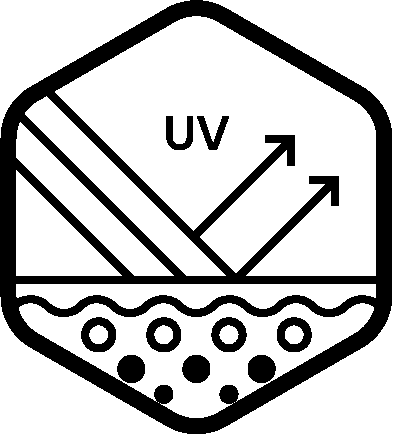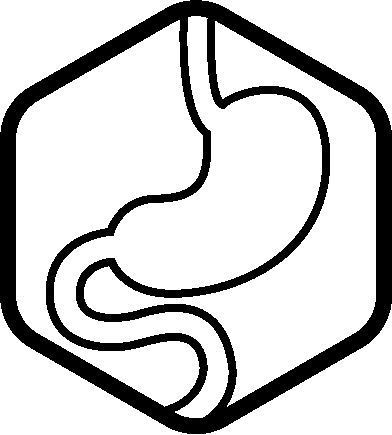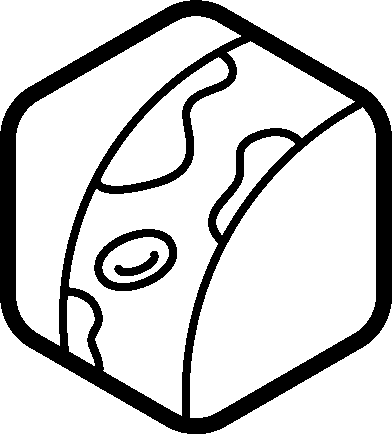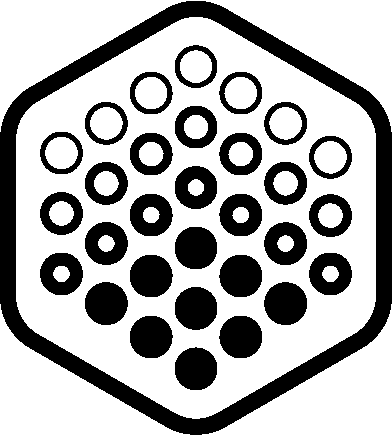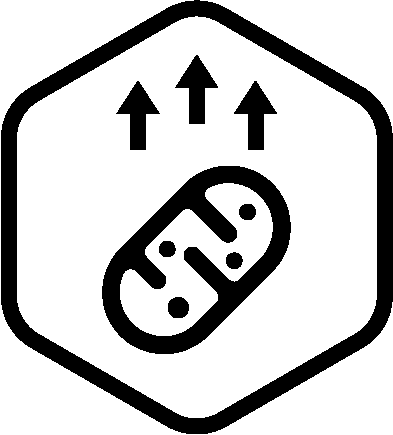Publication Date:
2022-11-01
Institutions involved:
- Daegu Haany University
- Korea Institute of Oriental Medicine
- CNS Pharm Korea Co. Ltd.
- Nutracore Co. Ltd.
Participants:
50 ICR (Institute of Cancer Research) mice
Duration:
8 weeks of daily oral administration
Dosage:
Unripe Apple (UA) extract: 100, 200, and 400 mg/kg/day
Learn more
Try Apple Poly Now
Key Takeaways:
Polyphenol-rich unripe apple extract (UA) extract lifted skin hydration from 34.8% to over 50%. Collagen type I rose sharply, crucial for skin firmness and elasticity.
Unripe apple extract can switch on key skin-regenerating genes — (like COL1A1/2 and HAS1–3) — not just slowing skin aging, but potentially reversing it.
Hyaluronan levels doubled in high-dose UA mice. Ceramide, vital for skin barrier integrity, jumped by nearly 90%, reducing moisture loss and inflammation.
Apple Poly Summary:
Why is this study important? This study explores the skin-enhancing and gene-activating potential of unripe apple extract (UA), a natural compound rich in polyphenols known for their antioxidant and anti-aging properties. This research provides molecular-level evidence that UA improves skin hydration and supports extracellular matrix (ECM) integrity — key factors in maintaining youthful, resilient skin. Its relevance is amplified by the increasing interest in functional foods and ingestible beauty products that deliver systemic skin benefits.
You Should Know: Researchers used mice to test the skin benefits of unripe apple extract because it's safer, cheaper, and easier to control than testing on humans. Mice share similar skin biology and age quickly, so scientists could measure effects like hydration and collagen production. You will likely learn more about skin aging from this study than most human studies.
In Plain English: Scientists gave mice unripe apple extract for eight weeks and found their skin became more hydrated and healthier. The extract boosted important skin molecules like collagen, ceramide, and hyaluronic acid — all of which help keep skin smooth and moisturized. This suggests unripe apples might be vital bioactive compounds for use in natural skincare or supplements.
For Medical Professionals: Oral administration of UA (100–400 mg/kg/day) in ICR mice over 8 weeks significantly increased dermal hydration and upregulated expression of key skin barrier and ECM components, including ceramide, hyaluronan, COL1, and TGF-β1. RT-PCR analysis confirmed elevated mRNA levels of HAS1–3, COL1A1/2, and TGF-β1. These findings suggest UA’s potential as a bioactive agent for enhancing skin barrier function and mitigating age-related dermal degradation via modulation of ECM synthesis pathways.
Abstract:
Objectives: Skin aging is generally characterized by wrinkles, sagging, loss of elasticity, roughness, pigmentation, and dryness. These changes are caused by reduced elements of the extracellular matrix, such as collagen fiber, elastic fiber, and hyaluronic acid. Adequate skin hydration is important to maintain normal skin function and reduce skin aging. The present study aimed to observe skin moisturizing effects of unripe apple (UA, immature fruit of Malus pumila Mill) in vivo and its underlying molecular mechanisms.
Methods: ICR mice were orally administered UA (100, 200, and 400 mg/kg/day) for 8 weeks. Skin water content and the expression of transforming growth factor (TGF)-β1, ceramide, hyaluronan, and collagen type I (COL1) were measured in dorsal back skin. Gene expression of hyaluronan synthase (HAS1, HAS2, HAS3), collagen synthase (COL1A1, COL1A2), and TGF-β1 were also determined by real-time RT-PCR.
Results: Skin water content and the expression of TGF-β1, ceramide, COL1, and hyaluronan were significantly increased in the UA group compared to vehicle control. The mRNA expression of HAS isoforms (HAS1, HAS2, HAS3), COL1A1, COL1A2, and TGF-β1 were also significantly increased by UA.
Conclusions: UA has skin moisturizing effects and enhances skin function-related components (COL1, hyaluronan, ceramide, and TGF-β1). These results suggest that UA could be a promising candidate for developing alternative skin-protective agents or functional food ingredients.
Park, Hye Rim, et al. “Skin Moisturizing Activity of Unripe Apple (Immature Fruit of Malus pumila) in Mice.” Journal of Korean Medicine Ophthalmology, Otolaryngology, and Dermatology, vol. 35, no. 4, 2022.
